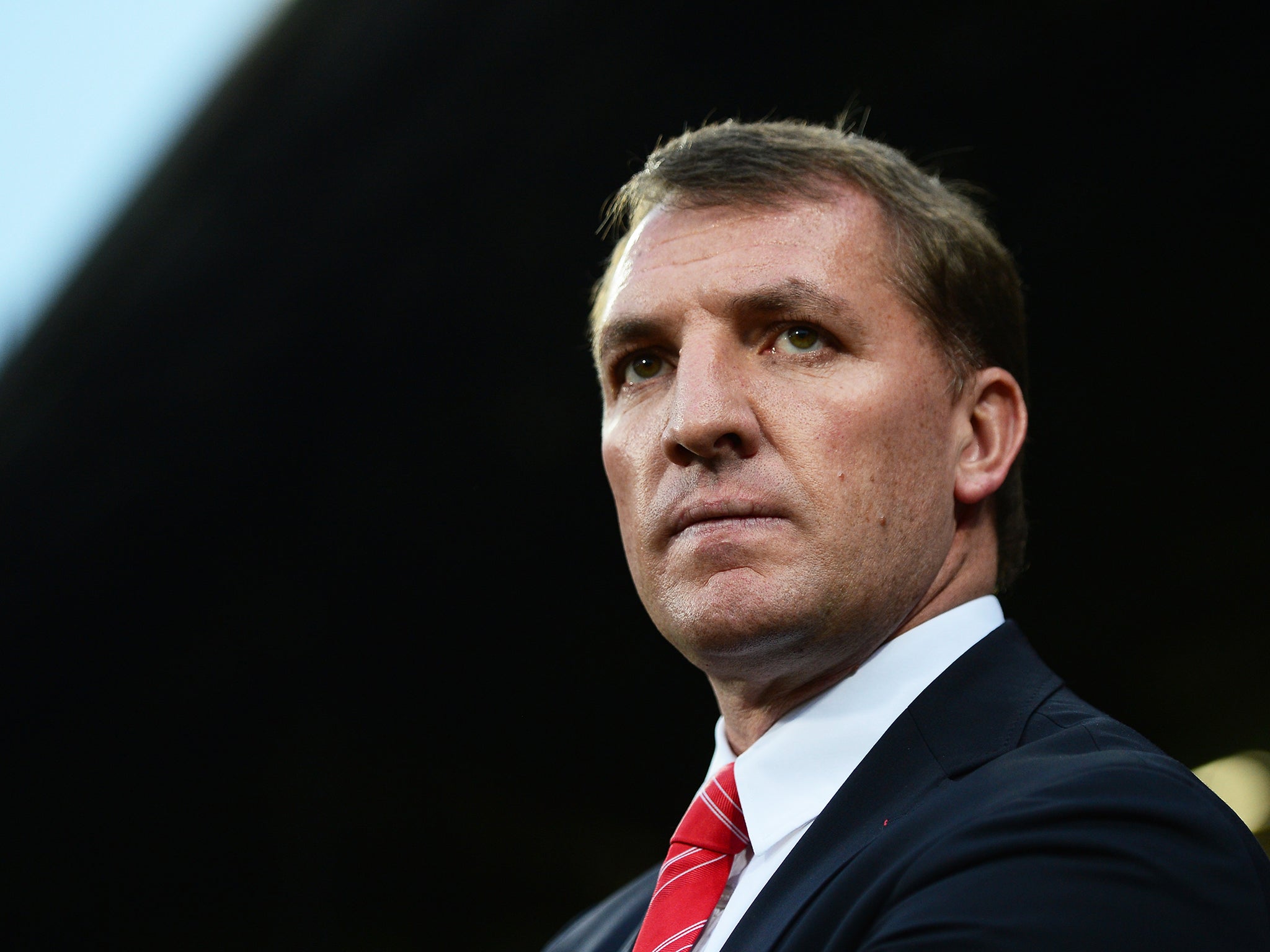Brendan Rodgers needs golden touch in the summer transfer market
The time for buying potential, not proven talent, is over if Liverpool are to make the step up

In the room where he has shared 1,000 ambitions, just as many strategies and no few dreams these past three years, Brendan Rodgers sat down once again to say that Liverpool would rise and that he would be at their helm when it happened. Even his characteristic sheen could not disguise that it was hard to come back to this training ground and start over.
The central plank of his defence of Sunday’s desperate, confused, desultory FA Cup semi-final defeat by Aston Villa – “Give me the tools” – was standard managerial issue, the inference being that it is not his fault that he has become the first Liverpool manager since the 1950s not to win a trophy in his first three seasons. There was certainly some justification in that. The manager’s latest bout of uncertainty about when he might next be able to call upon Daniel Sturridge – “we’re unsure at the moment”, he said, for the umpteenth time – crystallised what a cavernous hole he has had in the goal-scoring department since Luis Suarez left last summer. No one could have foretold that.
But Rodgers sanctioned the spending that Liverpool have made – £215m over those three years – and where some of this man’s shine has gone is in that conviction of his that he is the alchemy manager. The one capable, through sheer force of communication and power of motivation, of curing the madness of Mario Balotelli, bringing out the brilliance that Liverpool saw in Lazar Markovic, while Manchester United and Chelsea took a look and concluded he was not world class.
It is Rodgers’ conviction that he can alter the innate course of a player’s career which informs his dubious record in the transfer market. His associated conviction that he can engineer the course of a match with his tactical manipulations leads him to place himself far more at the centre of events than others. Twice altering formation at Wembley – from 3-5-2 to 4-2-3-1 on 25 minutes and again to 4-3-3 at half-time, when withdrawing the desolate Markovic for Balotelli – simply left a side wondering what to do next. Rodgers made it all too complicated. Liverpool fans have been discussing all week the Wembley statistic they see as most symptomatic of the malaise. Their team committed five fouls. Give us more trench warfare, less tactical faff, they say.
That criticism is complicated, because the 3-4-3 model Rodgers dreamed up in the midst of a personal torture last autumn – pacing his kitchen in Formby late at night, fearing for his job, wondering how to revive his team – was a piece of genius. An insider observed as the 3-4-3 began to bear fruit that it would not last forever and that other teams would cotton on to how to deal with it and those words feel prescient now. But Rodgers rescued the season in his kitchen and for that, above all else, his position should be unimpeachable.
“This isn’t a group of ready-made players used to winning. I’ve not taken over a machine that for 10 years was winning trophies,” Rodgers said. Yet his appreciation of that Bob Paisley era might have taught him the very different approach adopted by the most successful manager of them all. Paisley didn’t fiddle. He only used substitutes in 11 games in the entire 1978-79 season. And Liverpool exuded such emphatic certainty about all they did.
That story belongs to more benign commercial years, of course, when there was no commercial juggernaut from Manchester or London to contend with in the transfer market. But the players bought in those days were Liverpool material, not those who could be turned into such metal by the force of the manager’s personality.
Liverpool’s attempts at spotting tomorrow’s winners in the transfer market must surely be done now. This summer must be about spending the additional money which will give them more certainty about their single most significant acquisition this summer – a striker. “We’ve enough potential and players we can develop and improve,” Rodgers rightly said. “But I think it is definitely starters we [now] need and we have to be really forceful to get them.”
The names in the frame for Liverpool – Burnley’s Danny Ings and Manchester City’s James Milner – are typical of Anfield targets of recent years: those buyable on the cheap because they are untested at the very top level or verging on being out of contract.
But there is nothing in Ings’ game to suggest he will take Liverpool to the promised land. Nor Divock Origi – who finally arrives from Lille as very much a work in progress. These players will not do.
Rodgers’ Liverpool future rests on him persuading his club’s owners to abandon the idea they are smarter than the rest, to pay just the same money as all the rest, and then wait for his proclamations to bear fruit.
Subscribe to Independent Premium to bookmark this article
Want to bookmark your favourite articles and stories to read or reference later? Start your Independent Premium subscription today.

Join our commenting forum
Join thought-provoking conversations, follow other Independent readers and see their replies